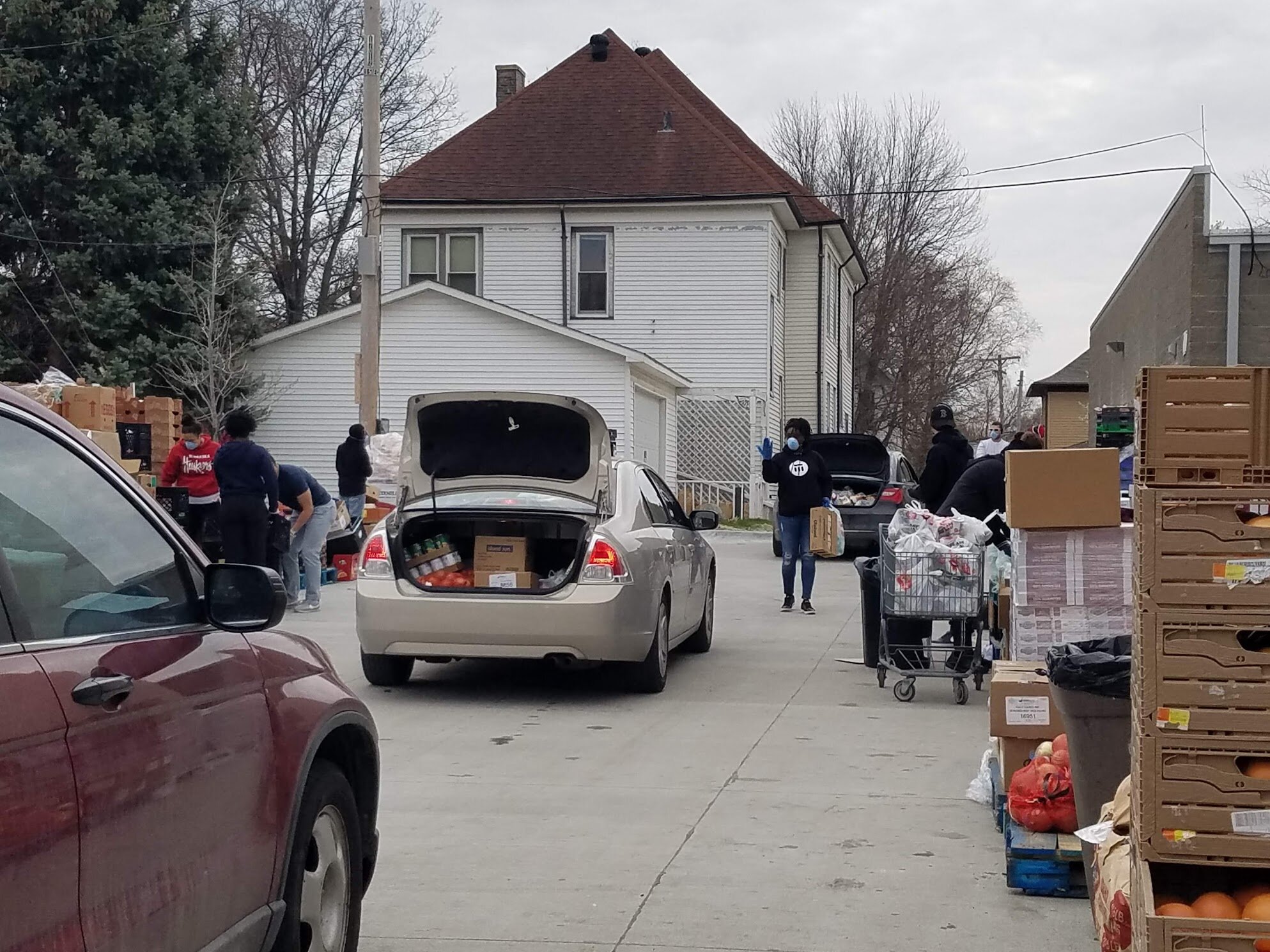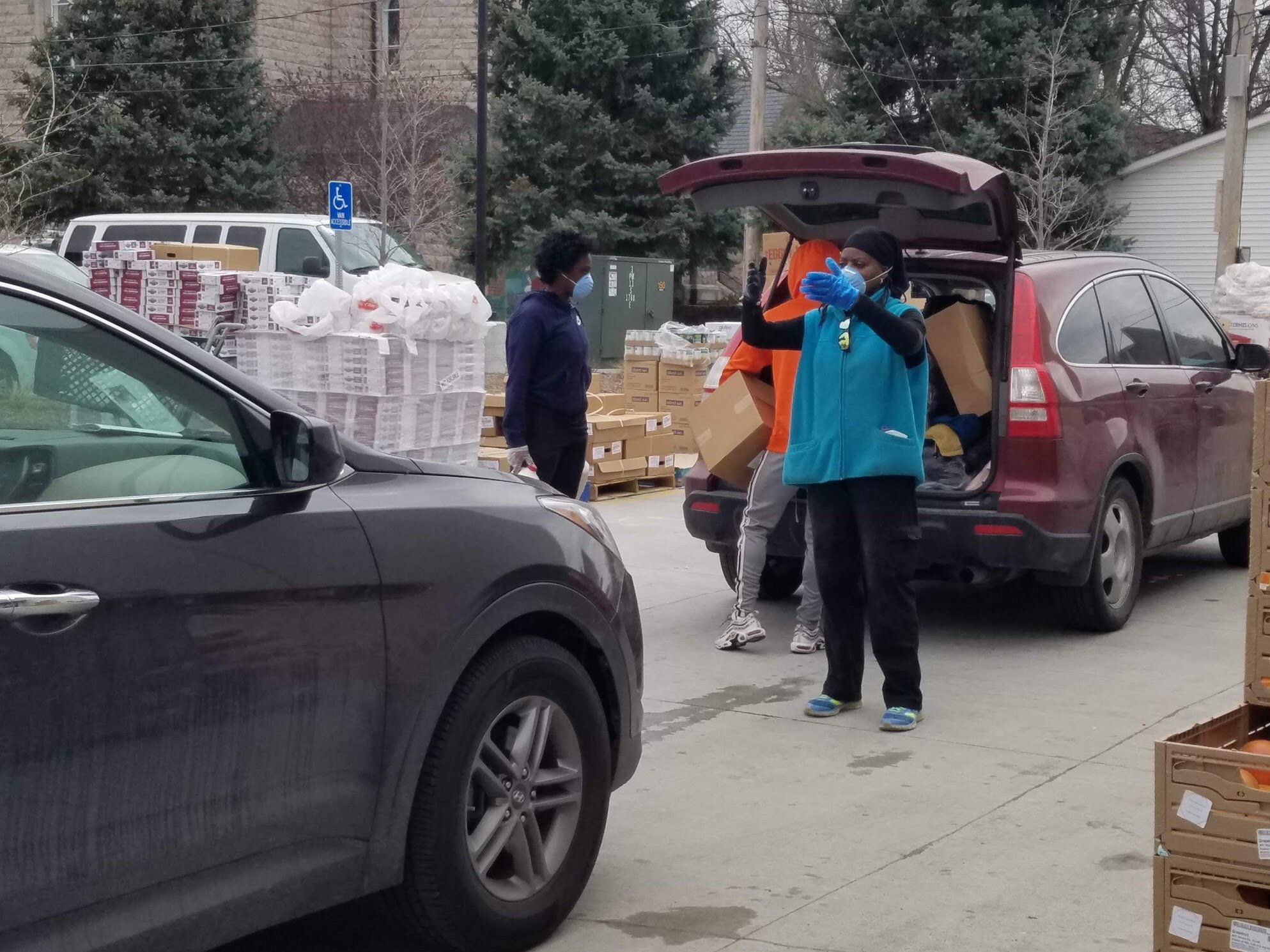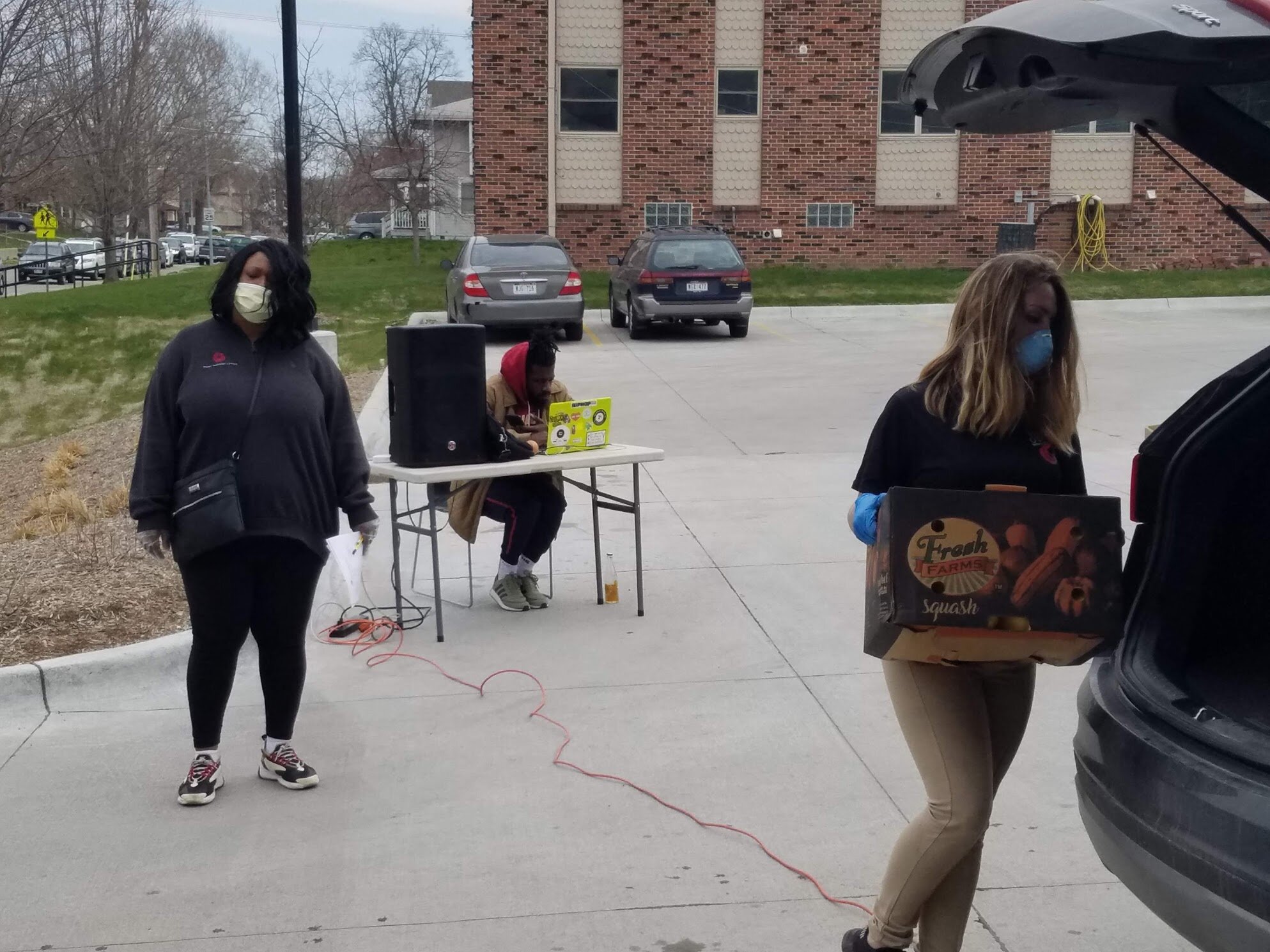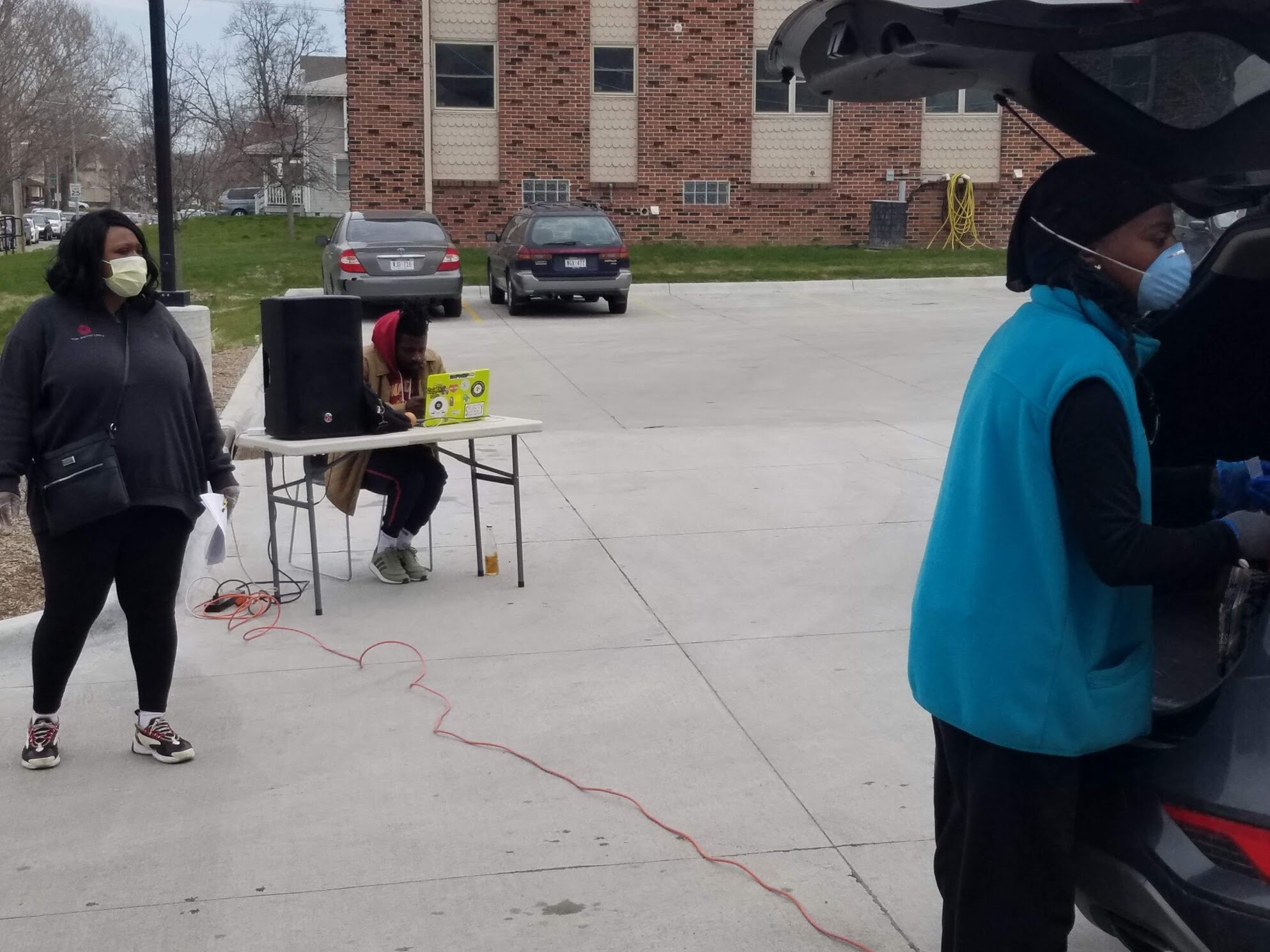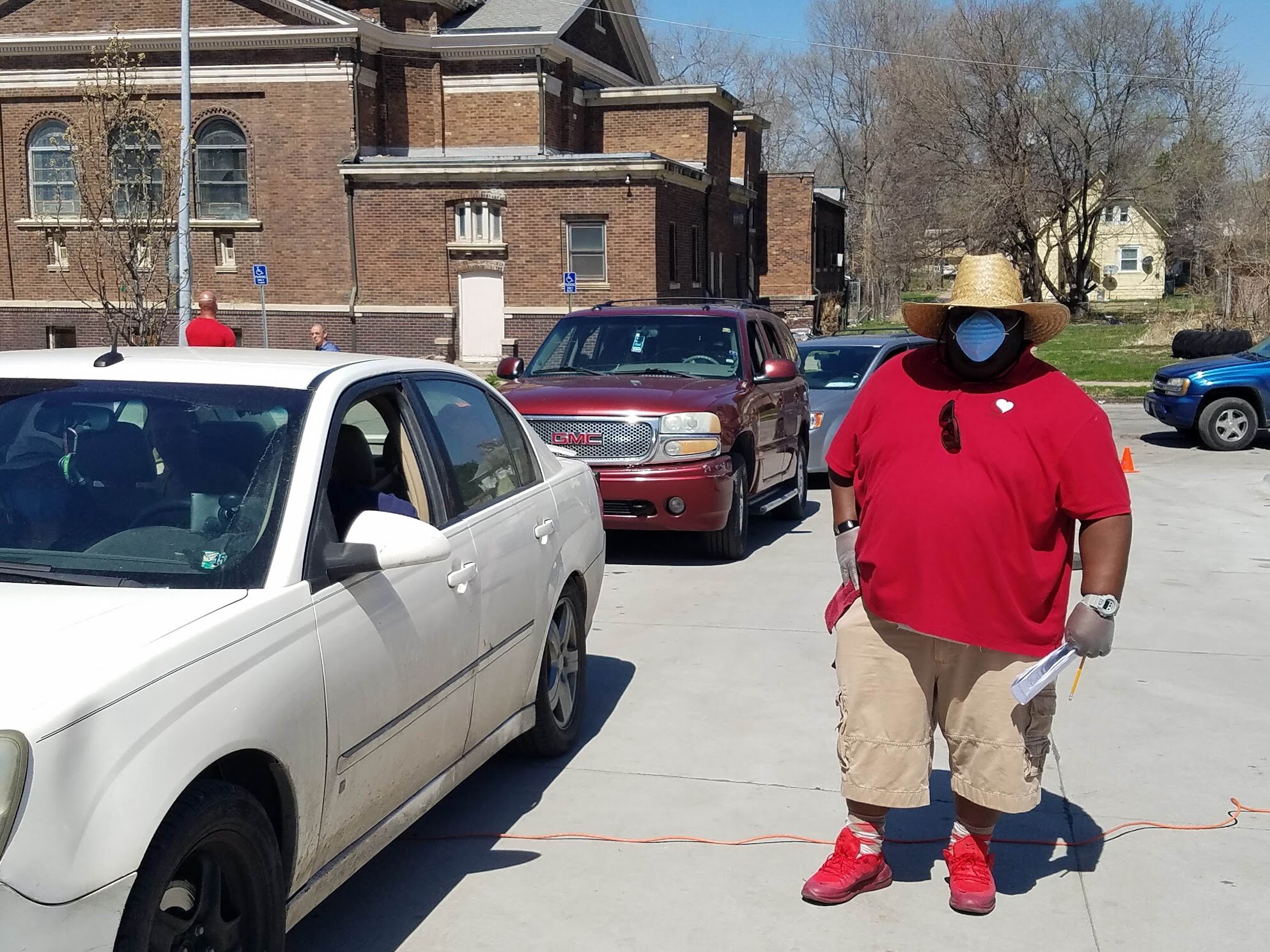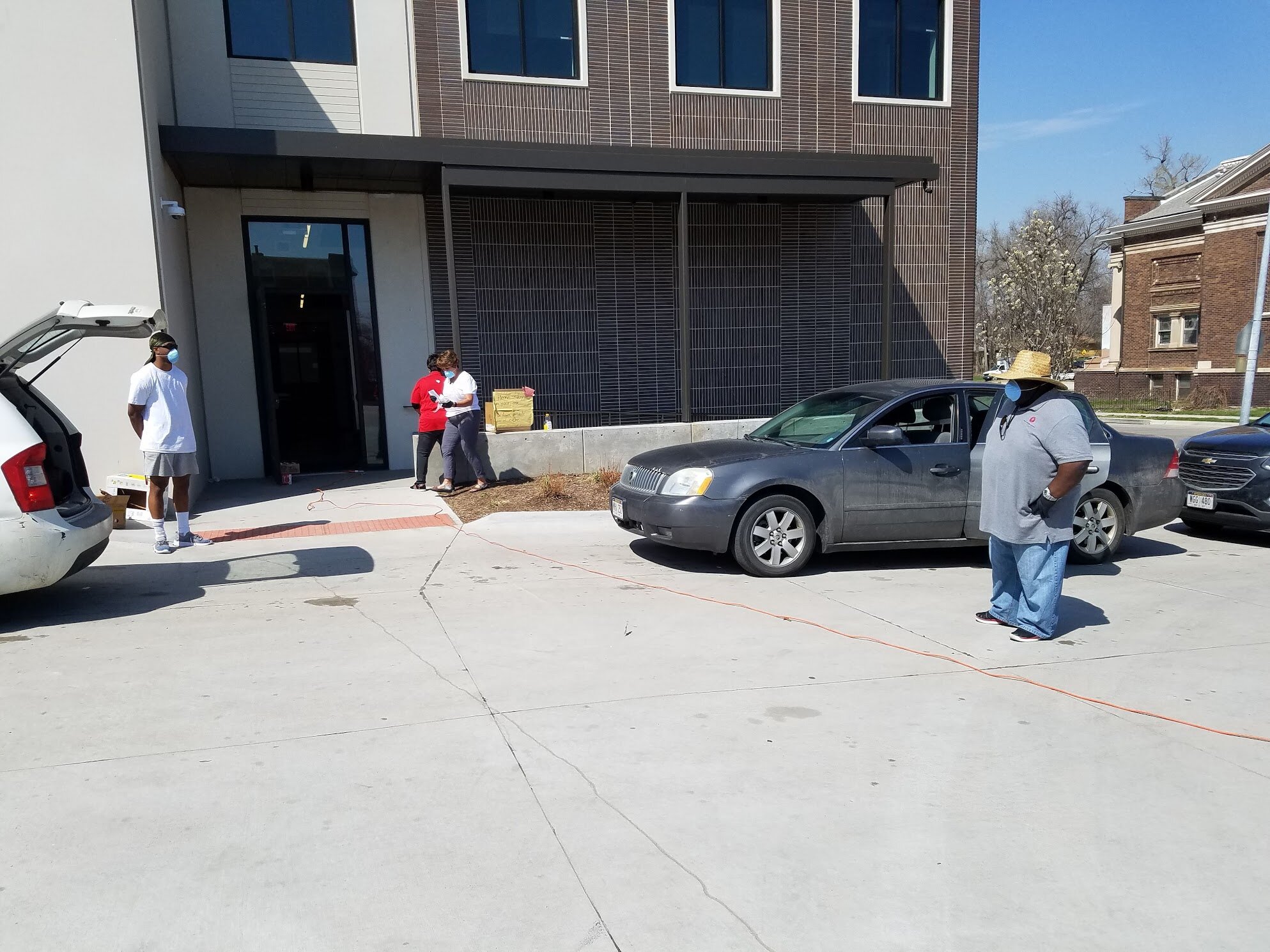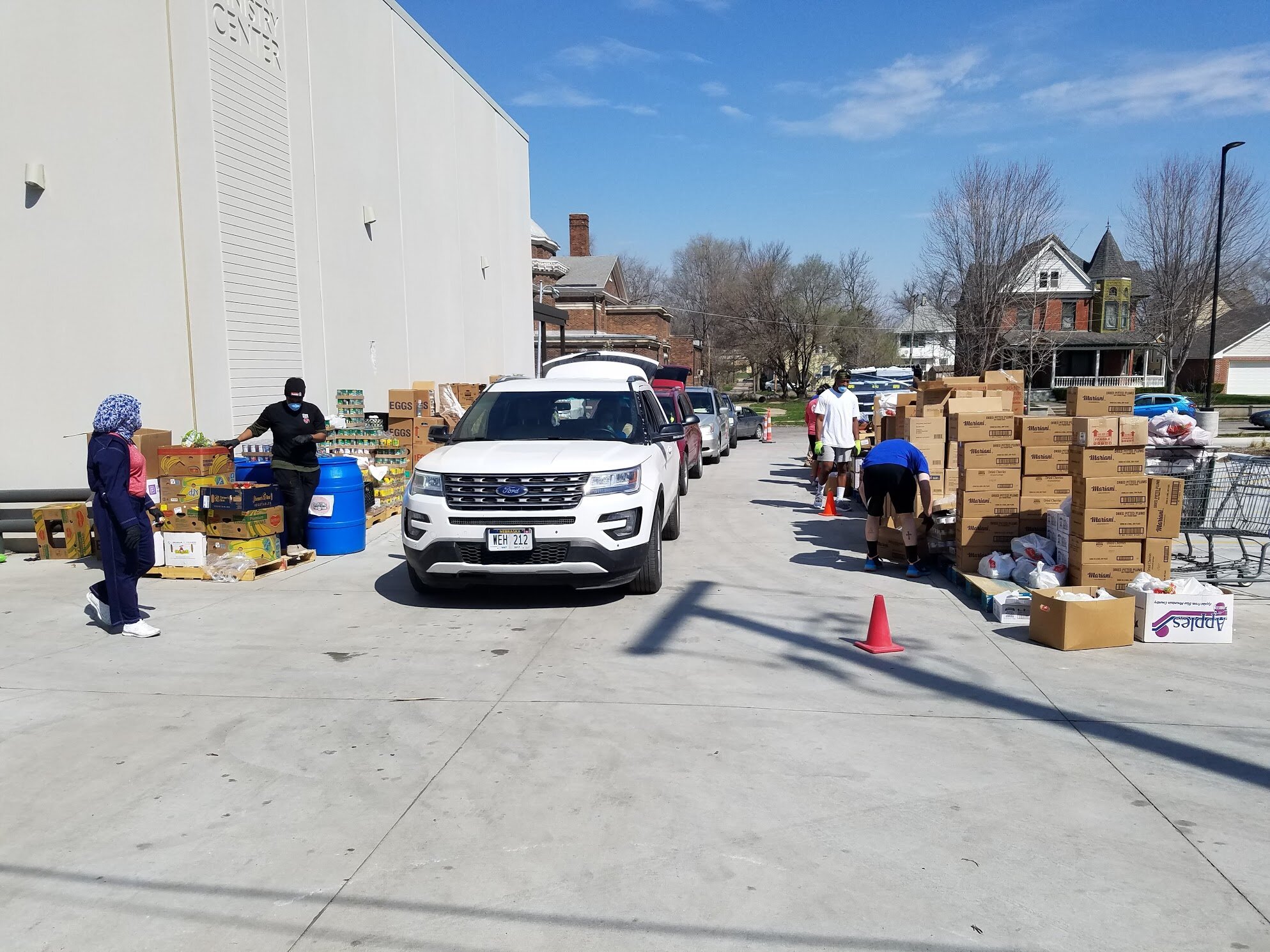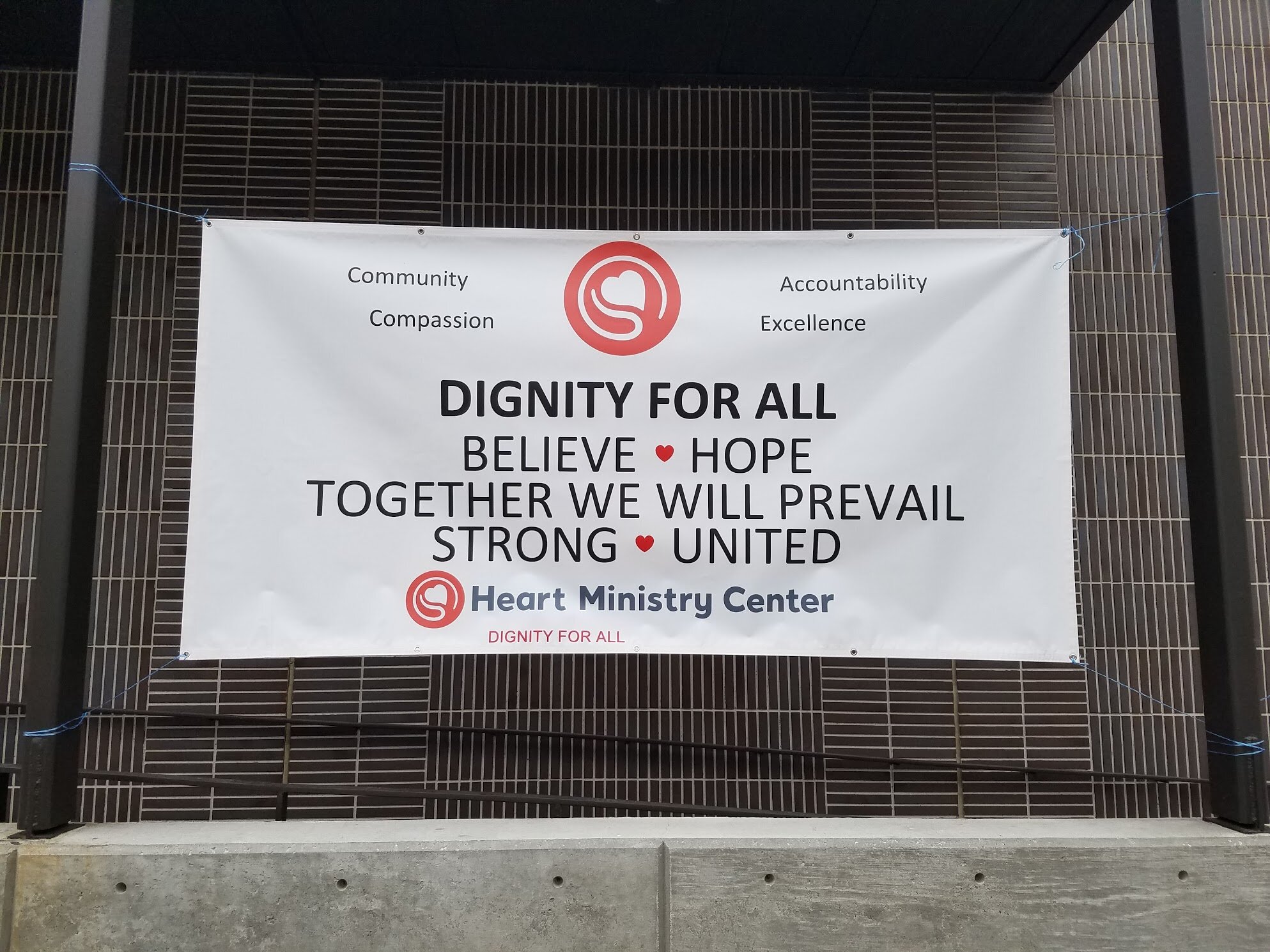Damany L. Rahn, happy in his purpose-driven mission
by leo adam biga
Heart Ministry Center (HMC) Director of Strategic Partnerships, Damany L. Rahn, at 42, knows first-hand the instability that clients of the North Omaha human services nonprofits face. HMC runs the states’ largest food pantry program. But staff and partner experts also offer life and job-readiness skills, healthcare services, substance abuse counseling, legal advice and an array of other services. Some clients qualify for a temporary cost of living relief.
(The updates in this profile story reflect conditions brought by the novel coronavirus pandemic in the United States.)
Damany “Dom” Rahn (right), photo by Heart Ministry Center.
Since 2002, Rahn, who goes by "Dom," has worked for organizations serving children and families. He joined Heart Ministry in 2015, as Director of Case Management and Social Work. His background makes it easy for him to identify with clients. The North-‘O’ native grew up in tough neighborhoods. His once-stable, two-parent household split when his father developed a serious drug habit. With his home life thrown into chaos, Rahn struggled to find firm footing; pulled in one direction by faith, and in the other by gangs.
“At 14/15, I decided that whatever I do in life, it has to be to help others. I come from a sort of strange dichotomy: My mother was a youth pastor (at Trinity Hope Foursquare Gospel Church) and my father was this street dude. So, I was raised with these two extremes—an extreme faith foundation and an extreme street foundation—and at some point, I had to strike a balance in who I was, as an individual, because I could go to [either] extreme.
“It came to the point it was very unsafe and unhealthy to live under the same roof with my father. So my mother decided it was time to make a change. Me, my mother and my little sister had two options—either go to the Open Door Mission, or go live with my grandmother. We opted to live with my grandmother. She loved being able to help. Many a family member stayed with her.” The experience mirrors that of many HMC clients, who may be a crisis away from homelessness or needing a pantry.
He has a brother, Marco, nine years his senior, to whom he’s always looked up. His brother’s growing-up was in sharp contrast to Rahn’s. “My brother experienced a much different family dynamic. When he came up my father always worked a good job and we lived in a middle-class setting. He went to Montessori. By the time I came around, I went to Head Start because Dad’s addiction had begun. When I was 9, Marco was long gone, serving in the Air Force and later becoming a police officer. Our younger sister was 14 when our mother passed, so her experiences were much different from what ours were.”
Dom attended Roncalli Catholic High School, where he wrestled and played football. Few there knew the pressures and poverty he faced. He slept on his grandmother’s basement couch; often couldn’t afford school meals. The lure of the streets loomed near.
Damany “Dom” Rahn in 2017 (HMC photo).
“Because of some great mentors in my life, I had the opportunity to go to Langston University, a historically black college in Oklahoma.” Those mentors included the late wrestling coach Joe Edmonson and former Omaha Housing Authority Director Bob Armstrong. But it was Rahn’s brother, Marco Rahn, who most influenced him. “He encouraged education and inspired manhood and responsibility. I admired his work-ethic and his ability to maneuver in many different arenas [sic]. This is a huge part of who I am today.”
“Going away to school,” Rahn says, “was the best choice I ever made. It was really to save my life; because I knew if I didn't leave it would have been very easy for me to have lost my dreams on that couch in that basement, and hanging out on those streets.” Some homies who stayed behind ended up incarcerated. Others, dead. “A lot of people didn't make it,” he says.
Coming back to work a Boys Town internship marked his first foray into being of service to others. Interacting with youths and families there decided his career for him. “I knew I had to do something in this arena for the rest of my life.”
He and his wife, Aiesha, who are parents to two children, briefly moved to Tacoma, Washington, to be near his brother, before fate brought them back to Boys Town, as family teachers.
Working at Boys Town one learns the things at which one is good, those areas that could use some development, he says. “Their training really prepares you. It dealt a lot with your inner person—what makes you tick. I still rely on that training today. The experience was huge for me and for my wife. It gave us the foundation for everything we needed going forward.”
The fellow Langston grads have masters’ degrees from Concordia University. Aiesha is a former Step-Up-To-Quality coach, who is now a Family-Engagement Supervisor for Educare of Omaha.
Much of Dom’s work has involved “connecting people to resources.” Before Heart, his stops included the Omaha Home for Boys, Food Bank for the Heartland and the Nebraska Children’s Home Society.
He’s found his professional home at HMC, where, he says, “Our mission is to provide food, healthcare and a way forward to people affected by poverty.” The organization. which grew out of a 1982 social ministry of adjacent Sacred Heart Catholic Church, recently expanded operations. Its neighborhood has Omaha’s highest concentration of poverty, but HMC serves folks well beyond that.
“We’re here for the larger community. Anyone can come if they need it. We’re not bound by this zip code,” he says. Catholic Charities call, “We help, not because you’re Catholic, but because we are”, applies to HMC as well.
July 8, 2019 - New addition to the center under construction. (Photo by HMC)
The pantry annually distributes three million (3,000,000) pounds of goods. About, 600 people fill the lobby weekly, to stock up on basic supplies. Rahn says he wants people to know HMC is “not just a pantry – we are a community center,” adding, “We want to be part of the community and we want the community to be a part of us.”
“It’s not just giving someone a bag of food, it’s getting them to the next level, through case management and social work, through our Fresh Start job-placement program. We offer medical and dental services and yoga. We take a holistic approach to work on your mind, body, and soul. We don't want folks … stagnant. We want them to get to the next level and then pay it forward.”
Much of the work, he says, is about delivering “truth in love, wrapped in compassion. … We want you to get to the next level, but we deal with the stuff that you have to fix first. We do it with the individual, walking hand-in-hand, side-by-side.”
His current position includes assessing the local human-services landscape in search of collaborative opportunities.
“It involves strategic thinking and planning,” he says. “If an agency’s vision and mission aligns with ours, and working together can impact clients in a positive way, then chances are we’re going to partner.”
He’s also tasked with recruiting volunteers. He expects volunteers to be “at their best” – on time and leaving their egos at the door. “You're not doing it for you or me,” he preaches. “you're doing it for clients.” He imparts the HMC credo of “respecting clients.” “We know nobody wants to have to provide for their family by coming to a pantry, therefore we demand dignity for all.” [emphasis added]
A new HMC facility at 24th and Wirt has created more space to serve more people. It includes a large classroom. The old space next door is being renovated to house, among other things, a social enterprise laundromat, accessible by clients and the public.
Rahn feels HMC is where he’s “supposed to be.”
“Our four core values are community, compassion, accountability, and excellence; and that is so true for me. If an agency’s mission is something I can get behind, then it’s not work. And Heart’s mission is something I stand behind. It makes the work easy.”
To volunteer, contact Dom at facebook.com/HeartMinistryCenter, or at (402) 451-2321.
Update: Essential Services
Luis Jimenez for NOISE
Heart Ministry Center drive-though pantry, to flatten the curve on the rate of infection.
The state of Nebraska announced its first travel-related case of COVID-19 on the 7th of March, in a person from Douglas County who recently returned from England. The woman was seriously ill but stable in Nebraska Medicine/University of Nebraska Medical Center's Biocontainment Unit. On March 13, Governor Pete Ricketts declared a state of emergency to fight against the respiratory virus.
Heart Ministry Center (HMC) responded by closing their lobby and giving out food packages directly into vehicles. With new rules and restrictions from state and local government, their deliberate coordination to serve their clients from the food pantry program was/is led by HMC Chief Operations Officer Mark Dahir (mark@heartministrycenter.org) along with other staff members and Damany Rahn in his role as Director of Strategic Partnerships (dom@heartministrycenter.org).
The alleyway and new building—constructed in 2019 by the Heart Ministry Center and finished that fall—allows for vehicles to receive one or two hefty pantry bundles. The line of cars usually expands down three blocks and can allocate food items to 150 clients per day. Volunteers and staff members load each vehicle from both sides and into the trunk or hatch-back rear once on the property and off Wirt Street. As the cars move along, workers in gloves and facemasks load a variety of food acquired by the nonprofit; eggs, milk, bread and sweet treats, grapes, strawberries, squash, onions, salad greens, canned pears, apples, sack-of-potatoes, vacuum-sealed meat packages, and boxed goods among other items.
The set up allows for cars to progress between stacks and pallets of food, up to three cars at a time. Rahn enlisted a DJ from Culxr House, an HMC neighbor across N 24th Street. Together they provide good vibes, a channel of uplifting energy through music for clients as they approach the cargo. Rahn says they “feed as many people as we can and make sure we have a great ambiance so that everyone feels love and compassion as they come through the line. We have a schedule that we keep. [A vehicle] is the best way to come so we can serve you quick and efficiently and safely as possible.” HMC plans to maintain deliveries as follows:
The Heart Ministry Center’s Drive-Thru Pantry Hours
Tuesday- 10:00 a.m. – 1:00 p.m.
Wednesday- 10:00 a.m. – 1:00 p.m.
Thursday- 10:00 a.m. – 1:00 p.m.
Friday- 11:00 a.m. – 2:00 p.m.
Saturday- 9:00 a.m. – 11:00 a.m.
